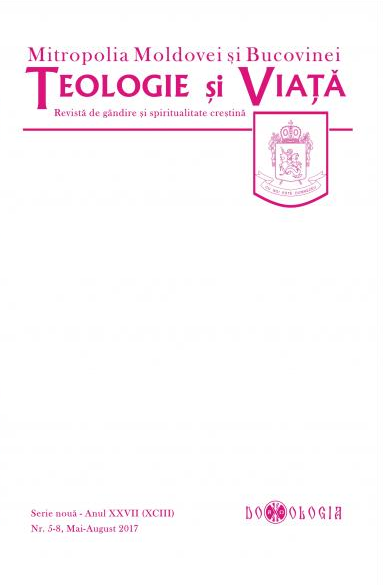Cunoașterea și viața virtuoasă în Răspunsurile către Talasie
Knowledge and virtuous life in Replies to Thalassius
Author(s): Valentin-Ștefan NuicăSubject(s): Christian Theology and Religion, Ethics / Practical Philosophy, Existentialism
Published by: Editura Doxologia
Keywords: knowledge; faith; humbleness; virtue; acknowledge;
Summary/Abstract: Knowledge and virtuous life are the key ideas in the Saint Maximus the Confessor thinking as it is brought to us in Questions to Thalassius. Virtuous life is best understood in the relationship between virtue and knowledge which implies the exercise of mind catharsis from the selfish self-love. Thus, through humbleness begins collaboration between God and man based on faith as faithfulness. The knowledge in Saint Maximus the Confessor is the result of the dialogue between γνῶσις and ἐπίγνωσις, and it means, in the first place, theologal knowledge – the lived existential knowledge of God. The process of knowing God is not both epistemological and gnosiological in the profound possible meaning. The knowing God assumes in Question to Thalassius a moral and existential effort from the man to acknowledge the reality of God’s presence and being in personal life, in society and world.
Journal: Teologie şi Viaţă
- Issue Year: 2017
- Issue No: 05+08
- Page Range: 132-152
- Page Count: 21
- Language: Romanian

